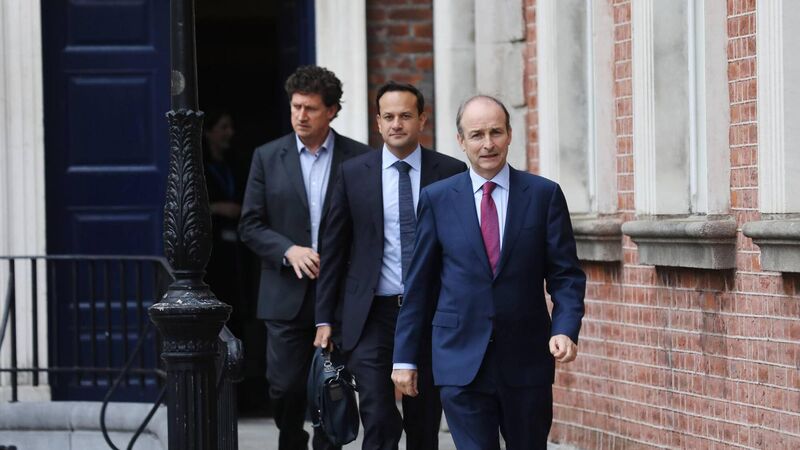Housing, climate change, and sick pay: What to expect as Dáil returns for 2021

Climate Action and Communications Minister Eamon Ryan, Tánaiste and Enterprise Minister Leo Varadkar, and Taoiseach Micheál Martin. File Picture: Julien Behal
A breathless Government is going full pelt on a treadmill that simply will not stop and, as the Dáil returns this week, many will feel that they never really got a chance to slow down over Christmas.
But away from the Covid chaos, the world continues to turn.













